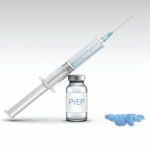Researchers have developed a scoring system to estimate the five-year risk for developing kidney disease among HIV-positive men, an aid that can help guide decision-making about the best antiretroviral (ARV) regimen for people with HIV, aidsmap reports. Publishing their findings in the journal AIDS, the investigators developed their risk score based on the medical records of 21,590 HIV-positive males who began taking ARVs between 1997 and 2010.
When developing the scoring system, the researchers included numerous factors linked to kidney disease development, including high glucose, triglyceride and systolic blood pressure levels, as well as hypertension, advanced age, protein in the urine and low CD4 levels.
A total of 7.7 percent of the men in the group who were taking Viread (tenofovir, which is a component of Truvada and is associated with an increased risk of kidney damage) developed chronic kidney disease during five years of follow-up, compared with 3.8 percent of men taking an ARV regimen that did not include the drug.
If men scored a zero on the risk scale and were not taking Viread, they had a 1 percent risk of developing kidney disease over a five-year period, compared with a 16 percent risk for non-Viread-treated men whose risk scores were nine or higher. Among the men who were on Viread, the five-year risk of kidney damage jumped from 1.4 percent with a score of zero to 21.4 percent with a nine or above risk score.
To read the aidsmap story, click here.
To read the journal abstract, click here.
Advertisement
Advertisement
Advertisement






Comments
Comments